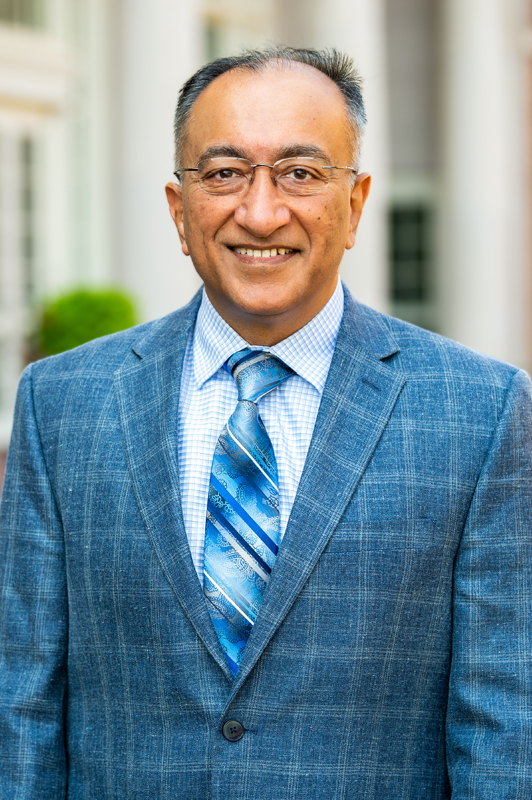Mechanical engineering professor wins multiple grants for AM sustainability and extreme environment electronics
Published: Nov 17, 2022 12:00 PM
By Jeremy Henderson
The Samuel Ginn College of Engineering’s preeminence in harsh environment electronics resiliency research was recently on full display in the latest project call of the NextFlex National Manufacturing Institute.
Pradeep Lall, the MacFarlane Endowed Distinguished Professor of Mechanical Engineering and director of Auburn University’s NSF-CAVE3 Electronics Research Center (CAVE3), led teams to two winning grants under Project Call 7 despite stiff competition from a strong field representing top universities and companies.
One winning project for $900,000 with 1:1 cost-share titled “Sustainable Additively Printed Electronics through Water-Solvent Inks-FHE Repairability-Low Temperature Processing” focuses on developing additively printed electronics manufacturing methods for enabling processes with environmentally friendly water-based inks. The Auburn University-led team includes MacDermid Alpha Electronics Solutions and global manufacturing company Jabil as sub-contractors.
“Environmental, social and geographical factors have gained increased prominence in the design of next-generation electronics systems,” Lall explained. “One needs to take a life-cycle approach beginning with design, manufacturing and usage to really make an impact. The prior generation of materials used to realize conductive interconnects and dielectrics use volatile organic solvents that could harm the environment. The ability to realize circuits with environmentally friendly materials will allow for sustainable electronic products.
In addition to using environmentally friendly materials, the project will explore the development of repairability in fabricating additively printed electronics and using low-temperature processing.
“Both repairability and low-temperature processing will be used as additional levers to make a sizeable impact on the realization of sustainable electronics,” Lall said. “Basically, we are looking for repairability methods that reduce e-Waste and low-temperature processing in order to reduce the carbon footprint.”
Another grant for $900,000 with 1:1 cost-share, titled “In-Mold Electronics interconnection and thermoforming for 3D-integrated applications,” focuses on additive methods for in-mold electronics to eliminate wire harnesses and develop next-generation human-machine interfaces in advanced driver assistance systems for vehicles.
“The present generation of vehicles use a significant weight of electronic cables and connectors to enable advanced electronic functionality,” Lall said. “Using in-mold electronics will reduce weight by eliminating several parts which will improve fuel efficiency and reduce the vehicle’s carbon footprint.”
Auburn University is the project’s technical and business lead on the program, with companies Toyota as supplier and Jabil, MacDermid Alpha as sub-contractors.
Lall also recently won a $285,000 grant focusing on electronics design for sustained high-temperature operation in automotive underhood applications from the Semiconductor Research Corporation (SRC). SRC is a consortium of major electronics companies focused on pre-competitive research. Lall has worked on several SRC-funded grants over the last two decades. The project builds on CAVE3 Center’s expertise in designing electronics for operation in harsh environments.
“Much of the advanced functionality on the automotive platform for driver assistance, navigation and control is enabled through electronics which may be mounted under the hood in front of the firewall or in the trunk where the temperatures are high on a sustained basis,” Lall said. “The new program will focus on developing tools to enable the incorporation of advanced chips in extreme conditions. The autonomous and semi-autonomous functions that use artificial intelligence for decision-making require advanced chips expected to operate in harsh environments.”
Under Lall’s leadership, CAVE3 has risen to international technical prominence for developing electronic technologies for sustained operation in harsh environments.
In 2015, he led the Auburn team that was part of the winning proposal establishing the NextFlex National Manufacturing Institute.
Lall is a member of the NextFlex Technical Council and academic co-lead of two technical working groups on asset monitoring and automotive electronics.
Auburn University is the tier-1 founding member of the NextFlex National Manufacturing Institute.
Media Contact: , jdh0123@auburn.edu,
Pradeep Lall, center, monitors students in his lab.


